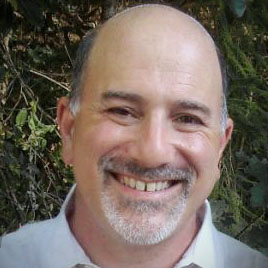People experience the deep pain at different times: when a personal tragedy or loss shakes us to our core. When an eye opening experience shocks us into reassessing reality. When we recognize that truths we held as self-evident were not shared by others.
For many, in both political parties, the world fell apart (again) during and after an election that gave voice to some of the most virulent bigotry, misogyny, racism, and anti-Semitism in generations. Attitudes and opinions that long lurked beneath or just at the surface in America – unacceptably but ostensibly unfashionable – were shared openly for all to witness.
The nation’s foundation stones were again shaken; their brokenness is painful to see. Once the genie of hatred, sexism, and religious/national bigotry is let out, it cannot be easily bottled back up. Nor should it. We need to stare deeply into that darkness as we ask: Is there comfort after the pain?
We might find wisdom in our parasha, which this week glimpses Isaac’s deep pain, as his world falls apart when his mother Sarah dies. The death of a parent might not seem earth shattering, unless of course it is your parent. Then, like the keriah ribbon, the world feels torn asunder.
In Genesis 24:67, we read that after he marries Rebecca, “Isaac was consoled [found nechama] for the loss of his mother.” In fact, two extended chapters and three years pass between Sarah’s death to Isaac’s comforting (according to Sefer Olam Rabba). We discern therefore that Isaac’s pain was deep, his cherished love for Sarah unmatched. For Isaac, comfort comes from chesed (unconditional, unlimited love) shared with another person.
To find comfort, Isaac eventually shifts his self-identity from being a mourner in pain to a person of love. As scholar Aviva Zornberg explains, “Rashi often explains the word, nechama, comfort…, as machshava acheret, ‘a different thought.’ The notion is that comfort [implies] a shift in paradigms, allowing new questions, new anomalies, to remove one from old preoccupations. In Rashi’s reading, therefore, Isaac is freed from his preoccupation with his mother’s life; he is freed, essentially, for new thoughts, a new way of thinking his existence.” [Zornberg, Aviva, Genesis: The Beginning of Desire, p. 138] This shift of attention brings him great comfort.
We today can find comfort by shifting attention, as Rabbi Stephanie Kolin wisely urges, to our country’s great fractures. Rabbi Kolin writes, “What should we do with the … great fracture … between people of color and white folks, between the wealthy and the poor, between immigrants and born citizens, between those in the middle of our country and those on the coasts? Laid bare, these fractures seethe with anger, suspicion, and blame for the ills of our society. And what should we do with the crack that has revealed the ubiquitous nature of sexual assault on women and girls who have more and more begun to find the strength to come forward and talk about their experiences? And what should we do with the crack that revealed unmitigated hate once hidden by the anonymity of the internet – Anti-Semitism, Islamophobia, xenophobia – now appearing as acceptable mainstream speech?” [Sermon, 11/2016].
Or paraphrasing my daughter Rachel, we might respond to the fact that the ugliness during this election is not new. It is just starkly revealed (again) to those who might more easily want to ignore it.
Do we need a paradigm shift to find comfort? Or do we just need to open our eyes?
Recognizing that there is a fractured world all around us, maybe we can recalibrate our worldview. Let’s have tough conversations with people we work with and eat with. Let’s sit with the discomfort our differing views might bring forth. In doing so, the many who feel protected might find comfort by opening our eyes to the realities more usually ignored. Hearing each other out can teach us, strengthen us, deepen relationships and build coalitions.
Because the ugliness is again exposed. It is among us. We live in this reality, like it or not.
Comfort will come when we look the fractures in the face, with eyes and ears wide open, and renew our commitment and our efforts to respond. Then having examined our own complicity and our own compassion fatigue, we will become better agents of healing and change, more prepared to eradicate racism and misogyny, bigotry and anti-Semitism.
Now wouldn’t that bring everyone great comfort?
Rabbi Paul Kipnes leads Congregation Or Ami in Calabasas, CA.


